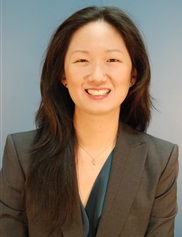Grants Funded
Grant applicants for the 2024 cycle requested a total of nearly $3 million dollars. The PSF Study Section Subcommittees of Basic & Translational Research and Clinical Research evaluated more than 100 grant applications on the following topics:

The PSF awarded research grants totaling over $650,000 dollars to support more than 20 plastic surgery research proposals.
ASPS/PSF leadership is committed to continuing to provide high levels of investigator-initiated research support to ensure that plastic surgeons have the needed research resources to be pioneers and innovators in advancing the practice of medicine.
Research Abstracts
Search The PSF database to have easy access to full-text grant abstracts from past PSF-funded research projects 2003 to present. All abstracts are the work of the Principal Investigators and were retrieved from their PSF grant applications. Several different filters may be applied to locate abstracts specific to a particular focus area or PSF funding mechanism.
Conjoint Analysis and Internet Crowdsourcing in Plastic Surgery
Cindy Wu MD
2015
University of North Carolina at Chapel Hill
Pilot Research Grant
Cosmetic, Economics/Quality/Outcomes
Aesthetic plastic surgery is a highly preference sensitive field, and internet savvy patients have to weigh many factors in choosing a plastic surgeon, including reputation, training pedigree, advertising strategy, long-term results, patient satisfaction, and word of mouth referrals. Young surgeons may not have the luxury of experience to rely on the last three elements to contribute to their referral base. In that case, understanding the valuation placed by different aesthetic patient cohorts is key to building a successful practice. However, what is unknown is what each patient subtype values the most in a plastic surgeon. Our purpose is to identify which characteristic of an aesthetic plastic surgeon's practice is most valuable to participants in three age groups (18-35 years, 35-65 years, and > 65 years) corresponding to the age demographic in the breast augmentation, “mommy makeover”, and facial rejuvenation cohorts. In order to identify the most valuable trait, participants will be asked to pick a plastic surgeon based on a combination of hypothetical websites, each with different attributes. Analyzing the trade-offs participants make when choosing a plastic surgeon, a method of preference elicitation called conjoint analysis, assesses the relative importance of each trait. Participants will be recruited by Amazon Mechanical Turk (MTurk), an online labor recruiting service that allows researchers to enroll anonymous survey participants to complete research surveys. The results of our research would potentially impact plastic surgeons by improving patient centered and demand-led healthcare. In addition, the innovations of our study are the use of conjoint analysis to elicit patient preferences, and the first plastic surgery study to use MTurk as an efficient, anonymous, customizable, and electronic participant recruitment method.
 Dr. Cindy Wu: After completing one of the most prestigious aesthetic surgery fellowships in the country, Dr. Wu came to the University of North Carolina to further the field of aesthetic surgery by conducting research in patient decision making, marketing, and complications of cosmetic surgery.
Dr. Cindy Wu: After completing one of the most prestigious aesthetic surgery fellowships in the country, Dr. Wu came to the University of North Carolina to further the field of aesthetic surgery by conducting research in patient decision making, marketing, and complications of cosmetic surgery.